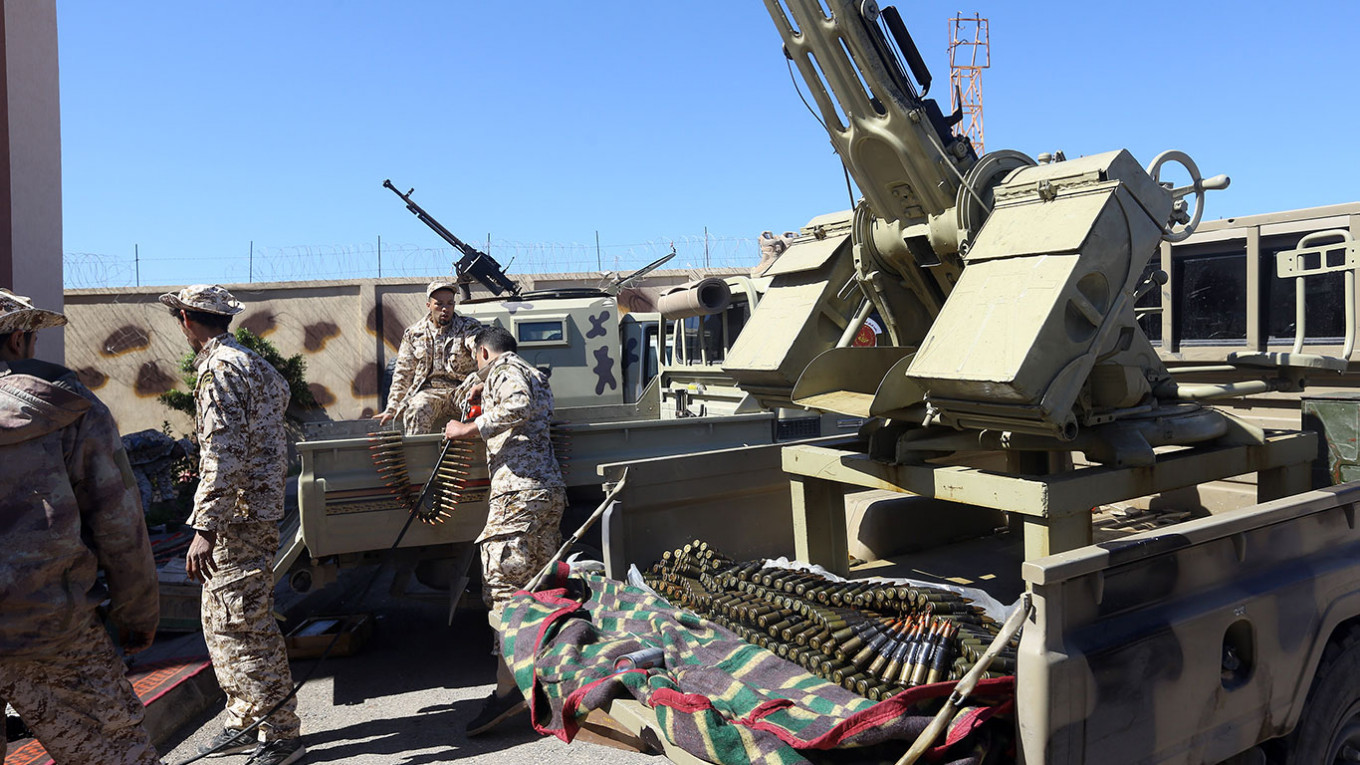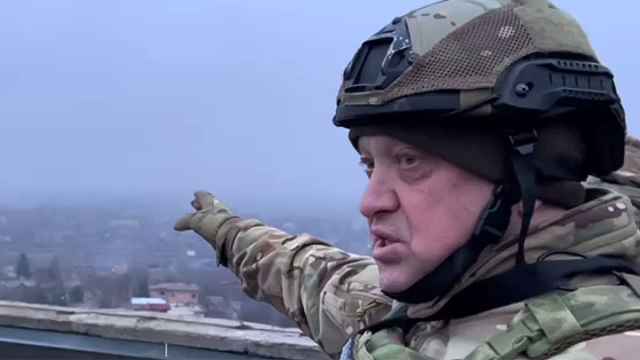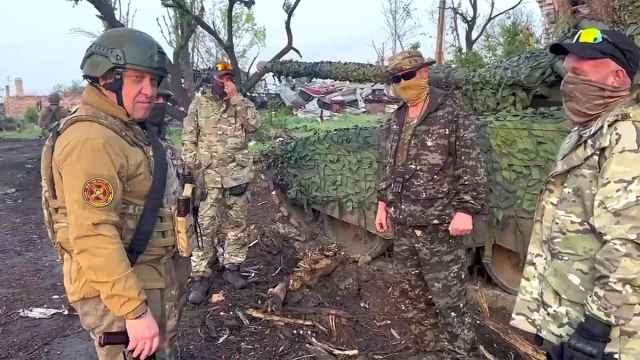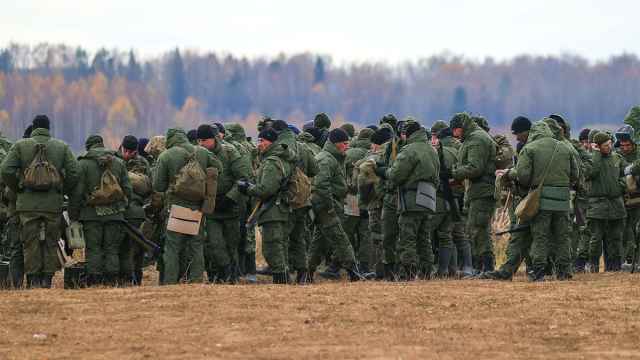Some 1,200 Syrian and Russian mercenaries have been pulled out of Libya as Moscow’s protracted invasion of Ukraine begins to place strain on the country’s military, the Financial Times reported Thursday.
Unnamed Libyan officials told FT that 1,000 Syrians and 200 Russians from the Wagner Group had been moved from the war-torn North African country in recent weeks.
A further 5,000 Wagner mercenaries still remain in the country.
Private military company Wagner is believed to be funded by Yevgeny Prigozhin, a Russian catering magnate with ties to President Vladimir Putin, although the Kremlin denies official links with the group.
Libya expert Emadeddin Badi said “there has been an uptick” of withdrawals in the past few weeks.
“They are still there but there are a lot less of them,” Badi, the Atlantic Council’s Middle East Initiative senior fellow, told FT.
The publication said separate reports indicated that an estimated 200 Wagner fighters had also left the Central African Republic.
Two unnamed Western officials cited by the newspaper linked these moves to Russian setbacks on the battlefield in Ukraine. Britain’s defense ministry suggested late last month that Russia has likely deployed Wagner fighters in Ukraine “at the expense of operations in Africa and Syria.”
The Western officials also told FT it was still unclear whether Syrian fighters would be deployed to Ukraine.
The Britain-based Syrian Observatory for Human Rights said in mid-March that 40,000 Syrian soldiers had been put on standby for deployment in Europe.
Putin had earlier backed plans to allow foreign volunteers to fight alongside Russian troops in Ukraine.
Russia has deployed mercenaries in other north and west African countries, including Mali, as it seeks to wield military and economic influence on the continent.
Those efforts include backing Libyan strongman Khalifa Haftar in his fight to seize power from the country’s UN-backed Government of National Accord.
A Message from The Moscow Times:
Dear readers,
We are facing unprecedented challenges. Russia's Prosecutor General's Office has designated The Moscow Times as an "undesirable" organization, criminalizing our work and putting our staff at risk of prosecution. This follows our earlier unjust labeling as a "foreign agent."
These actions are direct attempts to silence independent journalism in Russia. The authorities claim our work "discredits the decisions of the Russian leadership." We see things differently: we strive to provide accurate, unbiased reporting on Russia.
We, the journalists of The Moscow Times, refuse to be silenced. But to continue our work, we need your help.
Your support, no matter how small, makes a world of difference. If you can, please support us monthly starting from just $2. It's quick to set up, and every contribution makes a significant impact.
By supporting The Moscow Times, you're defending open, independent journalism in the face of repression. Thank you for standing with us.
Remind me later.






